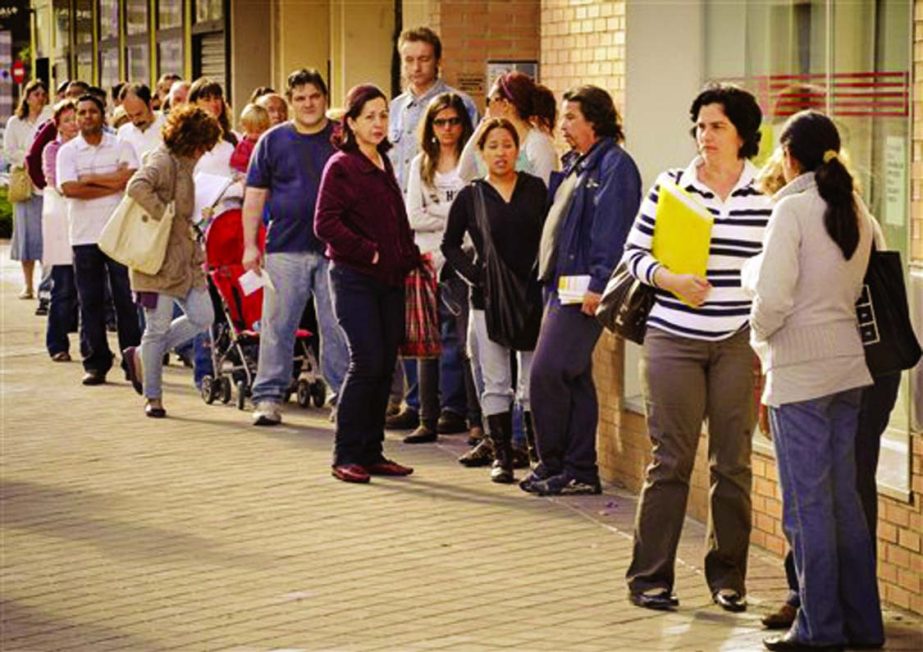
AFP, Paris :
Around 45,000 suicides each year are attributable to unemployment, according to a survey of 63 countries published in The Lancet Psychiatry Wednesday.
Health watchdogs should regard unemployment as a continuous suicide risk, and not just at times of economic crisis, its authors said.
University of Zurich researchers in Switzerland pored over mortality data from 63 economies between 2000 and 2011.
The period spanned prosperity and stability as well as the global financial blowup and its aftermath.
During this period, around 233,000 suicides were recorded each year, of which about 45,000 could be attributed to unemployment.
In 2008 and 2009, when the financial crisis bit hardest, the number of suicides rose by around 5,000.
Suicide prevention strategies “are necessary not only in difficult times but also in times of stable economy,” the investigation said.
Across all regions, the relative risk of suicide from 2000-2011 was 20 to 30 percent higher among those who had lost their jobs, the researchers found.
In contrast to previous studies, they discovered that both men and women, in all age groups, were equally vulnerable.
“Our findings reveal that the suicide rate increases six months before a rise in unemployment,” said lead author Carlos Nordt.
“What is more, our data suggest that not all job losses necessarily have an equal impact, as the effect on suicide risk appears to be stronger in countries where being out of work is uncommon.”
The raw figures came from the World Health Organization’s mortality records and the International Monetary Fund’s world economic outlook database.
Around 45,000 suicides each year are attributable to unemployment, according to a survey of 63 countries published in The Lancet Psychiatry Wednesday.
Health watchdogs should regard unemployment as a continuous suicide risk, and not just at times of economic crisis, its authors said.
University of Zurich researchers in Switzerland pored over mortality data from 63 economies between 2000 and 2011.
The period spanned prosperity and stability as well as the global financial blowup and its aftermath.
During this period, around 233,000 suicides were recorded each year, of which about 45,000 could be attributed to unemployment.
In 2008 and 2009, when the financial crisis bit hardest, the number of suicides rose by around 5,000.
Suicide prevention strategies “are necessary not only in difficult times but also in times of stable economy,” the investigation said.
Across all regions, the relative risk of suicide from 2000-2011 was 20 to 30 percent higher among those who had lost their jobs, the researchers found.
In contrast to previous studies, they discovered that both men and women, in all age groups, were equally vulnerable.
“Our findings reveal that the suicide rate increases six months before a rise in unemployment,” said lead author Carlos Nordt.
“What is more, our data suggest that not all job losses necessarily have an equal impact, as the effect on suicide risk appears to be stronger in countries where being out of work is uncommon.”
The raw figures came from the World Health Organization’s mortality records and the International Monetary Fund’s world economic outlook database.

